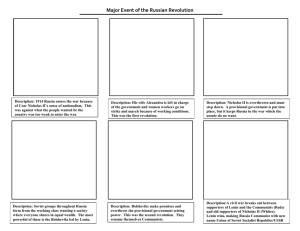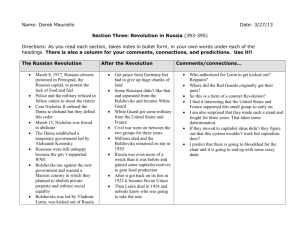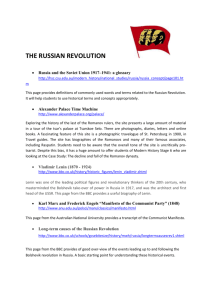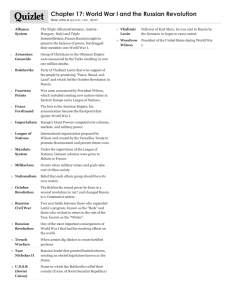called for the overthrow of capitalism and its replacement by... peasants and workers would have full democratic rights. Some of... Activity 3. “Call to Power” by V. I. Lenin (1917)
advertisement
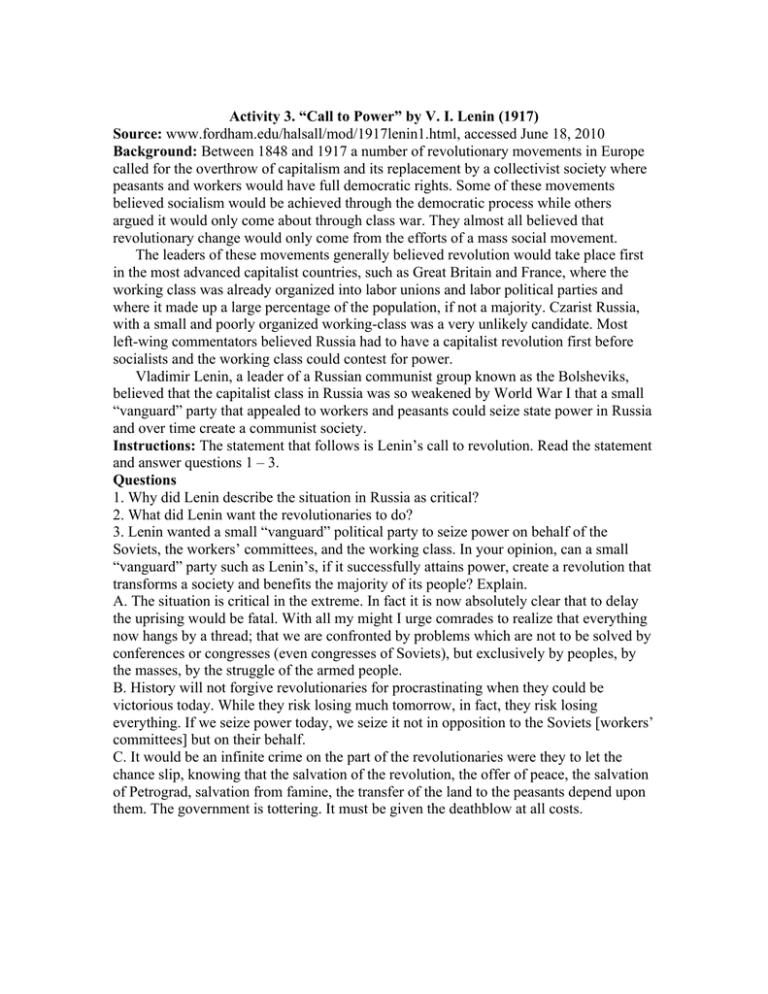
Activity 3. “Call to Power” by V. I. Lenin (1917) Source: www.fordham.edu/halsall/mod/1917lenin1.html, accessed June 18, 2010 Background: Between 1848 and 1917 a number of revolutionary movements in Europe called for the overthrow of capitalism and its replacement by a collectivist society where peasants and workers would have full democratic rights. Some of these movements believed socialism would be achieved through the democratic process while others argued it would only come about through class war. They almost all believed that revolutionary change would only come from the efforts of a mass social movement. The leaders of these movements generally believed revolution would take place first in the most advanced capitalist countries, such as Great Britain and France, where the working class was already organized into labor unions and labor political parties and where it made up a large percentage of the population, if not a majority. Czarist Russia, with a small and poorly organized working-class was a very unlikely candidate. Most left-wing commentators believed Russia had to have a capitalist revolution first before socialists and the working class could contest for power. Vladimir Lenin, a leader of a Russian communist group known as the Bolsheviks, believed that the capitalist class in Russia was so weakened by World War I that a small “vanguard” party that appealed to workers and peasants could seize state power in Russia and over time create a communist society. Instructions: The statement that follows is Lenin’s call to revolution. Read the statement and answer questions 1 – 3. Questions 1. Why did Lenin describe the situation in Russia as critical? 2. What did Lenin want the revolutionaries to do? 3. Lenin wanted a small “vanguard” political party to seize power on behalf of the Soviets, the workers’ committees, and the working class. In your opinion, can a small “vanguard” party such as Lenin’s, if it successfully attains power, create a revolution that transforms a society and benefits the majority of its people? Explain. A. The situation is critical in the extreme. In fact it is now absolutely clear that to delay the uprising would be fatal. With all my might I urge comrades to realize that everything now hangs by a thread; that we are confronted by problems which are not to be solved by conferences or congresses (even congresses of Soviets), but exclusively by peoples, by the masses, by the struggle of the armed people. B. History will not forgive revolutionaries for procrastinating when they could be victorious today. While they risk losing much tomorrow, in fact, they risk losing everything. If we seize power today, we seize it not in opposition to the Soviets [workers’ committees] but on their behalf. C. It would be an infinite crime on the part of the revolutionaries were they to let the chance slip, knowing that the salvation of the revolution, the offer of peace, the salvation of Petrograd, salvation from famine, the transfer of the land to the peasants depend upon them. The government is tottering. It must be given the deathblow at all costs.
